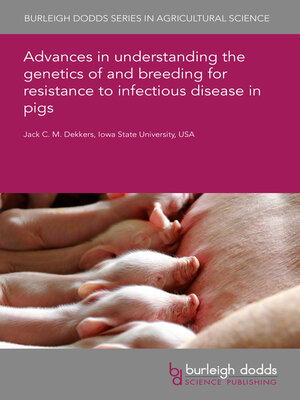Advances in understanding the genetics of and breeding for resistance to infectious disease in pigs
ebook ∣ Burleigh Dodds Series in Agricultural Science
By Professor Jack Dekkers

Sign up to save your library
With an OverDrive account, you can save your favorite libraries for at-a-glance information about availability. Find out more about OverDrive accounts.
Find this title in Libby, the library reading app by OverDrive.



Search for a digital library with this title
Title found at these libraries:
| Library Name | Distance |
|---|---|
| Loading... |
Pigs are exposed to numerous infectious disease pathogens, with large economic and welfare implications. How pigs respond to disease is in part determined by genetics. Thus, genetic improvement is one of the tools that can be used to mitigate the impact of disease, complementing biosecurity and vaccination. Although gene editing is a promising tool to create pigs that are resistant to specific pathogens, this is complicated by the multitude of pathogens that pigs are exposed to, their ability to evolve to escape resistance, and the threat of foreign pathogens. The purpose of this chapter is to review mechanisms of host defense to infectious pathogens, including the concepts of resistance, tolerance, resilience, and robustness, and strategies and challenges to use natural genetic variation to select pigs that are more resilient and robust, including the use of genomics and other -omics technologies.







